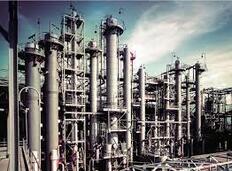- Wanhua's acquisition of Vencorex involves a €1.2 million purchase and a €19 million investment by 2027.
- The deal retains 54 out of 450 jobs at the Grenoble site.
- A proposed SCIC cooperative model was rejected due to insufficient financial guarantees.
- The acquisition highlights trends in automation and foreign ownership in the chemical industry.

Acquisition Overview
The Commercial Court of Lyon approved Wanhua Chemical's acquisition of Vencorex through its subsidiary BorsodChem. The €1.2 million deal includes a €19 million investment by 2027 and retains 54 of 450 jobs at the Grenoble site. This move aims to stabilize operations but raises questions about its long-term impact.
Local Impact
The acquisition provides immediate relief for retained employees but results in significant job losses for the majority. Local authorities express cautious support, emphasizing the need for a stronger commitment to local employment.
Rejected Alternatives
Employees and stakeholders proposed a SCIC cooperative model to preserve more jobs and maintain local control, but it was rejected due to insufficient financial backing.
Industry Trends
The acquisition reflects global trends in automation and foreign ownership, with potential modernization and increased efficiency possibly limiting future job growth. The cultural and strategic implications of foreign ownership are also a concern.
Opportunities in Green Chemistry
Wanhua has the opportunity to innovate in green chemistry, aligning with market demands for sustainable products. Transitioning Vencorex to greener operations could position it as a leader in eco-conscious production.
Regulatory and Community Considerations
The transaction highlights the need for regulatory reassessment to protect national employment interests. Collaboration among local governments, businesses, and educational institutions is crucial to equip displaced workers with new skills.
Future Resilience
Grenoble's economic future depends on community engagement and investment in new industries. While challenging, this transition could lead to long-term regeneration if managed carefully.

